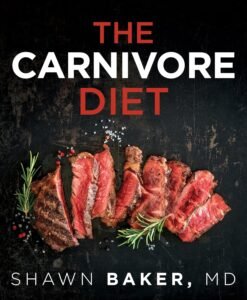
The carnivore diet focuses exclusively on animal products, while the keto diet includes both animal and plant foods, emphasizing low carbs. Both diets aim for weight loss and improved health, but the carnivore diet eliminates all plant-based foods, leading to different nutritional profiles and potential benefits for individuals.
The carnivore diet and the keto diet are two dietary approaches that have gained significant attention for their potential health benefits. While both emphasize low-carbohydrate intake and prioritize fat consumption, they differ in their food choices and overall philosophy. The carnivore diet, also known as the zero-carb or all-meat diet, focuses exclusively on animal-based foods like meat and eliminates potentially inflammatory plant foods. In contrast, the keto diet, short for the ketogenic diet, allows for a wider variety of low-carb foods, including non-starchy vegetables, nuts, seeds, and dairy products, while still promoting ketosis (a metabolic state where the body burns fat for fuel). Each diet has its unique benefits and considerations, making it essential for individuals to explore their options and choose the approach that aligns best with their health goals and preferences.
The Origins of the Carnivore Diet and the Keto Diet
The carnivore diet, also known as the zero-carb diet or the all-meat diet, has ancient roots, with proponents citing evolutionary evidence of human ancestors subsisting primarily on animal products. In modern times, the carnivore diet gained popularity through individuals like Dr. Shawn Baker and Mikhaila Peterson, who championed its potential health benefits, including weight loss, improved metabolic health, and reduced inflammation.
On the other hand, the keto diet, short for the ketogenic diet, was developed in the 1920s as a therapeutic intervention for epilepsy. By drastically reducing carbohydrate intake and increasing fat consumption, the keto diet induces a metabolic state known as ketosis, where the body burns fat for fuel instead of carbohydrates. Over the years, the keto diet has evolved beyond epilepsy management to become a popular weight loss and wellness approach, with proponents highlighting its ability to promote fat loss, stabilize blood sugar levels, and enhance mental clarity.
Benefits of the Carnivore Diet
- Simplified Eating: The carnivore diet eliminates the need for complex meal planning and food choices, focusing solely on animal-based foods like meat, fish, and eggs.
- Improved Digestion: Many individuals report improvements in digestive issues like bloating, gas, and reflux on the carnivore diet, attributed to the elimination of potentially irritating plant foods.
- Enhanced Nutrient Density: Animal products are rich in essential nutrients like protein, vitamins, and minerals, providing the body with bioavailable nutrients in their most absorbable forms.
- Reduced Inflammation: By eliminating inflammatory foods like grains, legumes, and processed sugars, the carnivore diet may help reduce systemic inflammation and support overall health.
- Potential Weight Loss: Some individuals experience weight loss on the carnivore diet due to its focus on satiating, nutrient-dense foods and the potential for improved metabolic function.
Daddy’s Pick
Benefits of the Keto Diet
- Weight Loss: By promoting fat-burning and reducing appetite, the keto diet can lead to significant weight loss, particularly in the initial stages of ketosis.
- Enhanced Mental Clarity: Many individuals report improved focus, concentration, and cognitive function on the keto diet, attributed to stable blood sugar levels and ketone production.
- Increased Energy Levels: With a steady supply of fat-derived energy, followers of the keto diet often experience sustained energy throughout the day, without the crashes associated with carb-heavy diets.
- Blood Sugar Regulation: The keto diet can help stabilize blood sugar levels and improve insulin sensitivity, making it beneficial for individuals with diabetes or metabolic syndrome.
- Potential Disease Prevention: Some research suggests that the keto diet may have therapeutic effects in conditions like epilepsy, Alzheimer’s disease, and certain types of cancer.
Daddy’s Pick

With our Keto Diet Cookbook, designed for everybody starting to follow the keto diet or who wants to recommit to a healthier lifestyle, you can set off on a life-changing path towards health and wellness. Explore a delectable life where dieting becomes an adventure rather than a task, and uncover the simplicity and joy of leading a low-carb, sugar-free lifestyle.
Differences between the Carnivore Diet and the Keto Diet
While both the carnivore diet and the keto diet share similarities in their emphasis on fat consumption and metabolic benefits, there are notable differences between the two approaches:
- Food Choices: The carnivore diet focuses exclusively on animal-based foods like meat, fish, and eggs, while the keto diet includes a wider variety of low-carb foods, including non-starchy vegetables, nuts, seeds, and dairy products.
- Carb Intake: The carnivore diet restricts carbohydrate intake to zero, while the keto diet allows for a moderate intake of carbohydrates, typically around 20-50 grams per day, to maintain ketosis.
- Fiber Consumption: The carnivore diet excludes fiber-rich plant foods, while the keto diet may include low-carb, high-fiber foods like leafy greens, broccoli, and avocado to support digestive health.
- Nutrient Profile: The carnivore diet prioritizes animal-based sources of nutrients like protein, vitamins, and minerals, while the keto diet incorporates a balance of fats, proteins, and carbohydrates from both animal and plant sources.
- Approach to Ketosis: Both diets can induce ketosis, but the carnivore diet achieves ketosis primarily through the elimination of carbohydrates, while the keto diet relies on a specific macronutrient ratio to trigger ketosis.
Optimal Results and Recommendations
- Starting the Carnivore Diet: Begin by gradually reducing carbohydrate intake while increasing consumption of animal-based foods like meat, fish, and eggs. Monitor your body’s response and adjust your diet accordingly to meet your individual needs.
- Starting the Keto Diet: Transition to a low-carb, high-fat diet gradually, focusing on whole, nutrient-dense foods like meats, fish, eggs, nuts, seeds, and low-carb vegetables. Aim to achieve and maintain ketosis by monitoring your macronutrient intake and staying hydrated.
Food and Drink Recommendations:
- Carnivore Diet: Focus on fatty cuts of meat, organ meats, eggs, and bone broth for optimal nutrient intake. Limit or eliminate carbohydrates, including fruits, vegetables, grains, and legumes.
- Keto Diet: Include a variety of low-carb, high-fat foods like meats, fish, eggs, dairy products, nuts, seeds, and non-starchy vegetables. Monitor your carbohydrate intake to maintain ketosis while ensuring adequate nutrient intake.
Statistics:
While precise statistics on the number of individuals following the carnivore diet or the keto diet are challenging to ascertain, both dietary approaches have gained significant popularity in recent years. Online communities, social media platforms, and scientific research have contributed to increased awareness and interest in both diets, with anecdotal evidence and clinical studies supporting their potential health benefits.
In the comparison between the carnivore diet and the keto diet, both approaches offer unique pathways to health and wellness, with distinct benefits and considerations. While the carnivore diet emphasizes animal-based nutrition and zero-carb eating, the keto diet allows for a broader range of low-carb foods while maintaining ketosis. By understanding the differences and similarities between these dietary approaches and considering individual preferences and goals, individuals can make informed choices to support their health and well-being. Whether you’re drawn to the simplicity of the carnivore diet or the flexibility of the keto diet, both paths offer the potential for transformative health benefits when approached mindfully and sustainably.
READ MORE
- The “Meat Monk” Routine: A Minimalistic, Monk-Style Daily Schedule Built Around Beef and Meditation
- Junk Food Jailbreak: Carnivore Keys to Freedom
- Pregnancy and the Carnivore Diet: Is It a Good Idea?
- When Is It Time to Stop Listening to Carnivore Influencers?
- Why the Carnivore Diet Differs From Location to Location: Why There Is No One-Size-Fits-All Rule
Exclusive Offer
